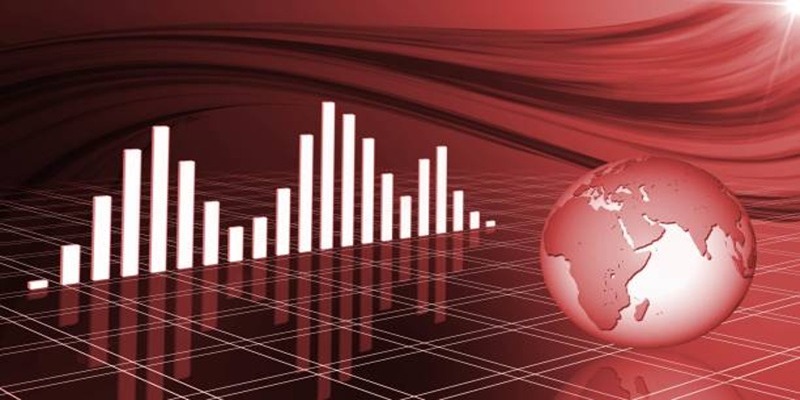We all know medical bills can be very high, and a medical emergency can be a huge financial burden if you are not prepared for it. Some people have insurance that can cover these medical bills, but some insurance only covers certain expenses. This is why having some savings for your medical expenses is essential.
A Health Savings Account can be very beneficial. It is a fantastic way to save tax on your money and save money for medical expenses. If you don't know what a Health Savings Account is, don't worrywe have you covered. In this article, we have mentioned everything that you need to know about these Health Savings Accounts. So, let's jump right into the article.
What is a Health Savings Account?

The question is what a Health Savings Account is. A Health Savings Account, more commonly called an HSA, helps you save money only for medical bills. These accounts are tax-advantaged, meaning you don't have to pay any tax on the money you save.
The HSA is only used if you are under a high-deductible health plan, which covers preventive health services before the deductibles. With the HSA-eligible plans, the monthly premiums are pretty low, but you need to pay for the out-of-pocket health care costs before your insurance starts paying for the medical expenses.
There are a lot of institutions that offer these HSAs, such as banks, credit unions, and other financial institutions. The money you save in your Health Savings Account can be used for many different health services, such as ambulance costs, doctor visits, hearing aids, prescription drugs, psychological therapies, long-term care services, and others. This shows that these accounts can be very beneficial and help you reduce the medical financial burden on the families.
How Does HSA Work?

Now, how do these accounts work?? The people with HDHPs can open these accounts easily. To open your HSA, you must be eligible and meet a few Internal Revenue Service (IRS) requirements. They have the following things to consider when applying for this account:
- Have a qualified HDHP.
- No other health coverage should be present
- Should not be enrolled in Medicare
- Should it be claimed as dependent for other tax returns
Another thing you should know about these Health Savings Accounts is that you can make a maximum contribution of $4150 in 2024. However, if you are a family, you can make a maximum contribution of $8300 in 2024. People over 55 can make catch-up contributions with an additional $1000 to their accounts by the end of the tax year.
You must also know that you can only contribute cash to these accounts. If this is an employee-sponsored plan, then it can be funded by both the employee and their employer. Any other person, for example, a family member, can also contribute to these HSAs for the eligible individual.
How to Apply for the Health Savings Account?

If you want to open an account, you need to follow a proper process. The first step is to enroll in an HDHP. You can do this with the help of your employer's human resources department. This will advise you to make your own HSA. More employer-associated HDHPs come with HSAs; however, if this is not the case, you can set up your own HSA. Every HSA provider has its terms through which you can open the account.
Other than this, some HSA providers even allow you to invest in different stocks, bonds, and funds. If you are making HSA through a bank, they will provide you with an interest rate you must pay them monthly or yearly.
After you have selected your provider, the next step is pretty straightforward. You just need to complete an application with the information and details about the HDHP. When the information is approved, your account will open, and you can start contributing funds.
Advantages and Disadvantages of HSA
Now that you know what HSA is, how you can enroll for one, and how it works, you should also know the benefits and disadvantages of this account.
Pros
Tax Advantages
The employer-associated HSA has a tax advantage. This means that the contributions through the payroll to the HSA exclude the tax that they have paid. This means they will save tax money, which they can use for their medical expenses.
Even the individual HSAs not made through the companies do not take any tax. The funds are qualified for the medical expenses, so no tax will be deducted from the money you contribute to these accounts.
Investment Options
Another great thing about these Health Savings Accounts is that they can be a fantastic investment opportunity. You can use the money in the account to invest in stocks, bonds, and other kinds of investments, which allows you to have high returns over time.
Cons
Deductible Requirements
The first major con of this HSA is that you must be a good candidate for HDHP. This means you need an excellent deductible plan, low insurance premiums, and the ability to afford high deductibles. Only then can you apply for this account.
Requires Extra Cash
People who have these HSAs and fund them by themselves through their payroll or directly need to have enough money so they can add it to their accounts. They should be able to set aside a specific amount that will cover their HDHP deductible. For some people, this can become hard if they are not able to manage the amount that they need for funding.
Final Words
Medical expenses can be very high, and if you need medical assistance out of the blue, paying the bills can become very challenging. This is why the Health Savings Account can be very beneficial. The money you contribute to these accounts is only used for medical bills; the best thing is that they are tax-free. Hence, we hope this article was beneficial for you.




